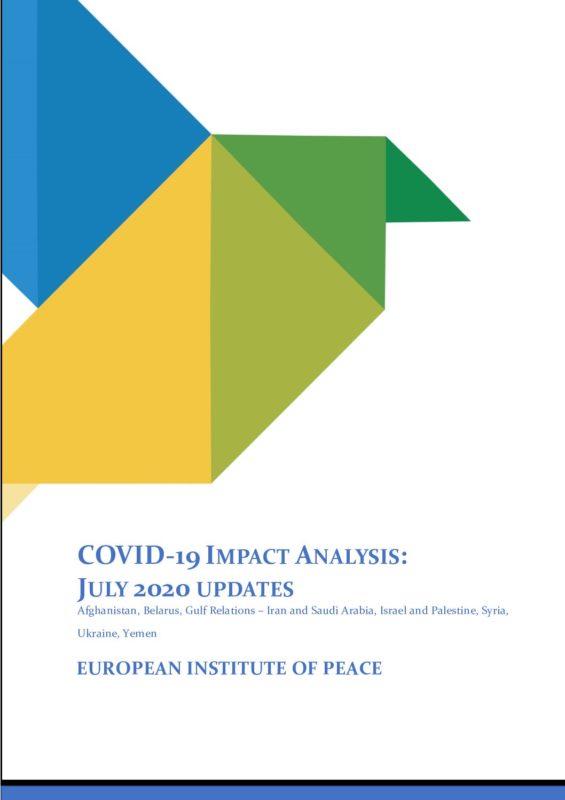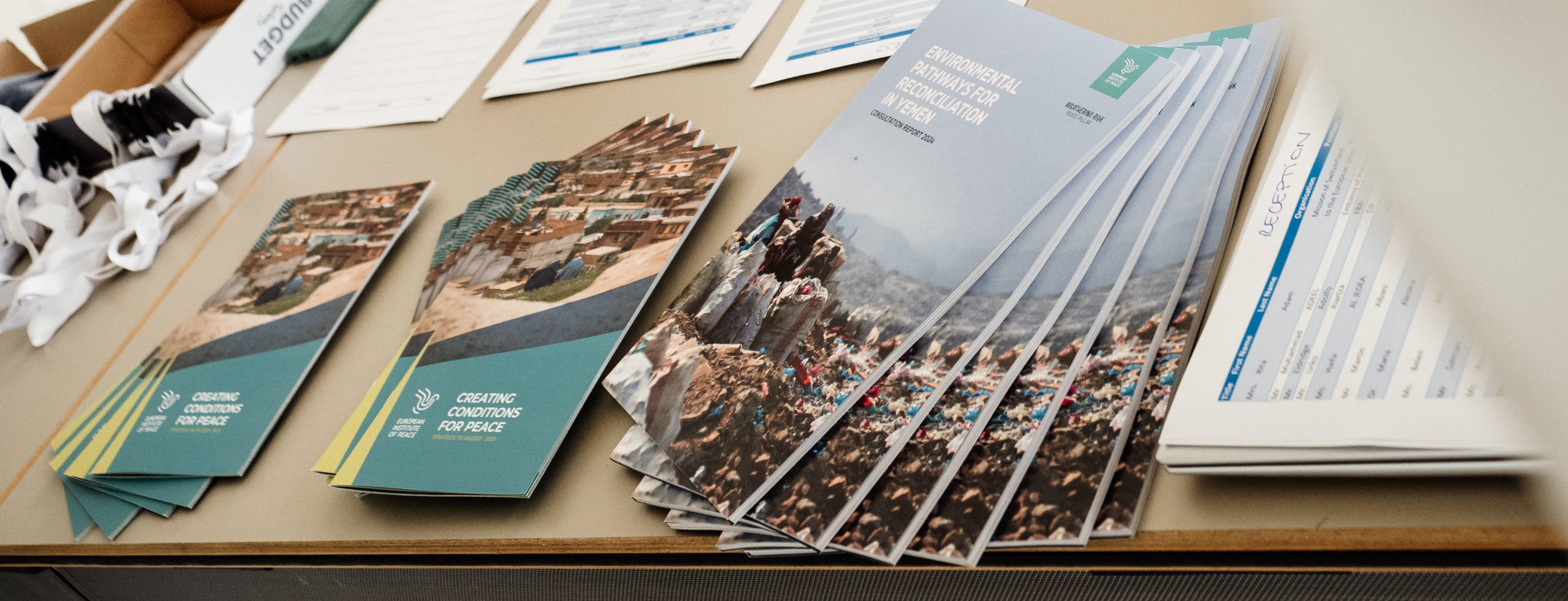Covid-19 Impact Analysis: Afghanistan, Belarus, Gulf Relations – Iran and Saudi Arabia

Executive Summary
This is the sixth paper in a series generated by the European Institute of Peace (EIP) monitoring the impact of Covid-19 on fragile and conflict-affected states. The objective is to draw attention to the conditions and prospects facing people in these countries, to provide the political backdrop to the Covid-19 pandemic and to offer specific recommendations to European policy makers and their partners.
This edition focuses on providing updates on the situation in Afghanistan, Belarus, Iran, Saudi Arabia, Israel and Palestine, Syria, Ukraine and Yemen following a previous analysis in early June.
Since our last Impact Analysis in June, the health situation continues to deteriorate. There are nearly 12 million confirmed coronavirus cases worldwide, according to researchers at Johns Hopkins University, and there is no light at the end of the tunnel.
Uncertainty affects everyone, but it is chronic as well as acute in conflict affected states. Most countries featuring in this impact analysis are being hit by a resurgence of Covid-19 infections.
In Afghanistan, cases have approximately trebled since the end of May. Iran’s coronavirus death toll exceeded 12,000 on 8 July, the health ministry said, with 153 deaths in only a 24-hour period.
The situation has also worsened in the Middle East. Despite swiftly putting in place strict measures, Israel has seen a sudden jump in the infection rate following a loosening of restrictions. The Palestinian territories are also seeing a growing number of infections.
An exception to this trend is Belarus where infections have slowed, although there are widely held suspicions of underreporting by the government.
As the UN Secretary General António Guterres said on 2 July, “the health pandemic has fast become a protection crisis” and the need to protect the most vulnerable has become even more acute. The most pressing issue is still guaranteeing conflict-affected states access to essential supplies with growing concerns over food shortages.
In northern Syria, the Covid-19 situation is being compounded by conflict and mass displacement with many families being forced to miss meals or sell assets to survive.The 10 July deadline for the extension of the United Nations Security Council’s cross-border aid resolution to Syria is now also rapidly approaching following a veto by Russia and Chinaon 7 July.
In Yemen, millions could soon be on the brink of famine as a result of severe economic disruption, a spike in Covid-19 cases and ongoing conflict. European policy makers, together with international partners, must urgently act together to provide a coordinated response.

